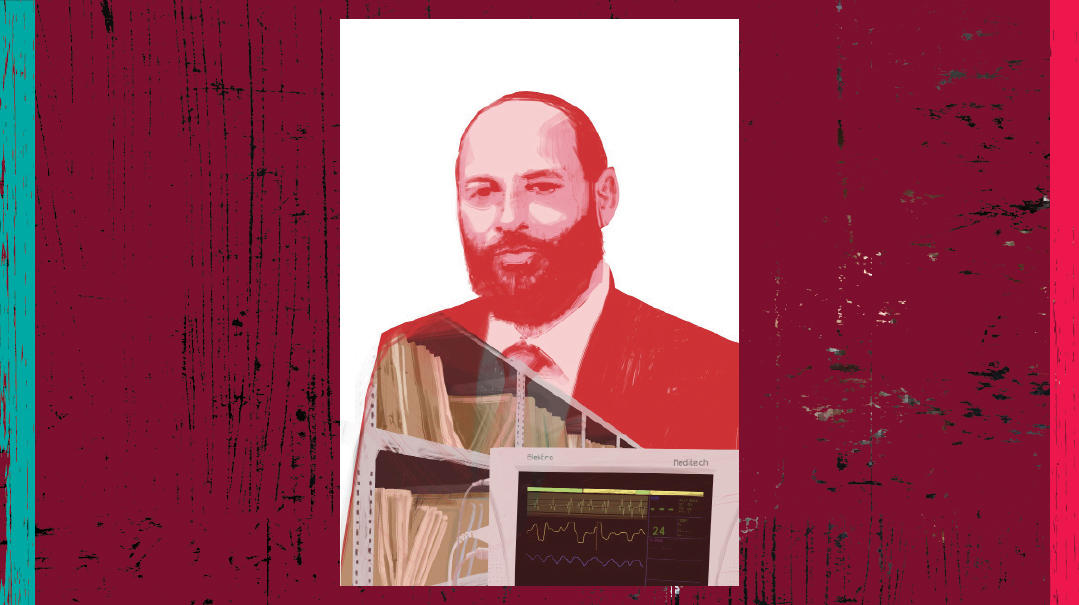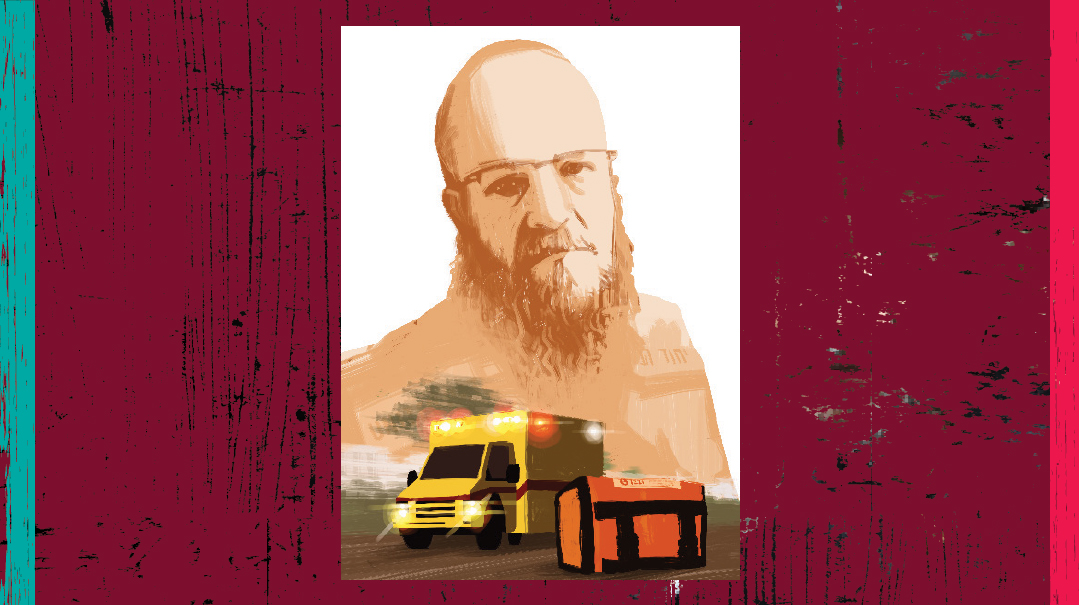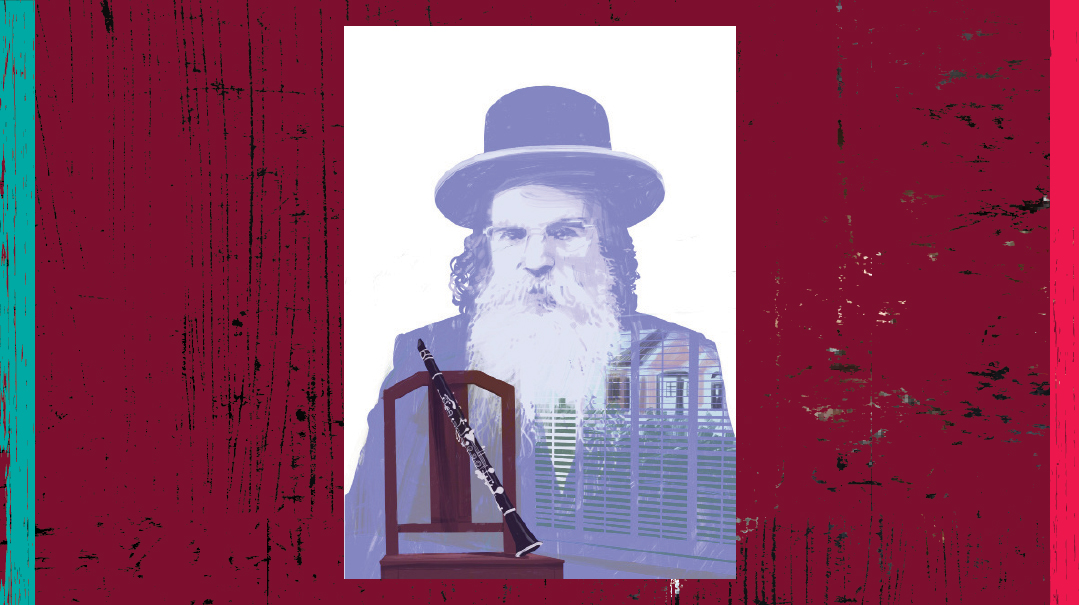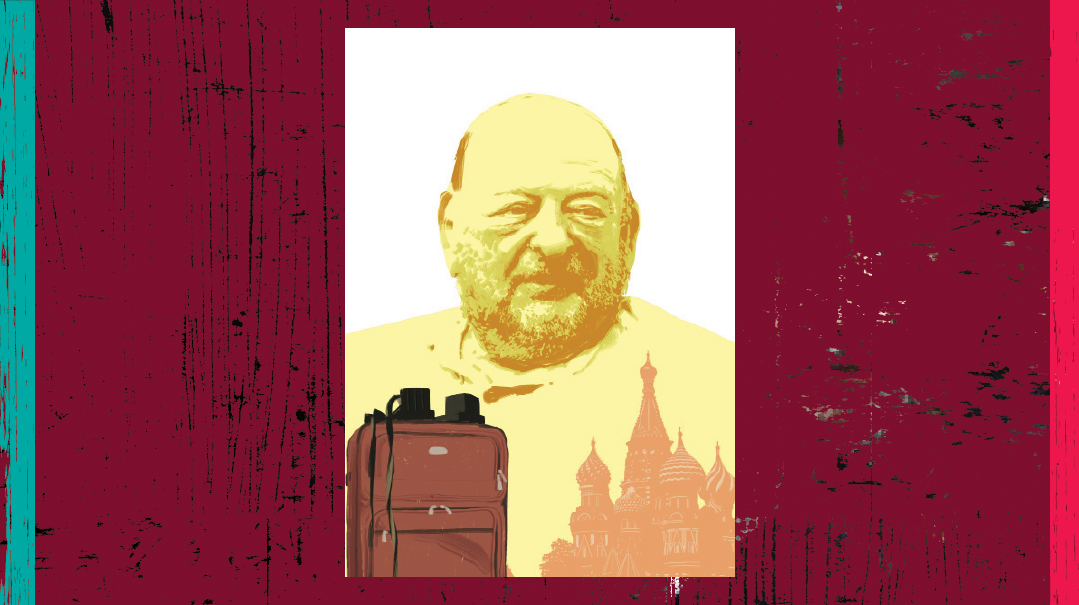Because You’re My Brother

We were there alone, a young couple in our twenties. How would we know how to comfort families in crisis?
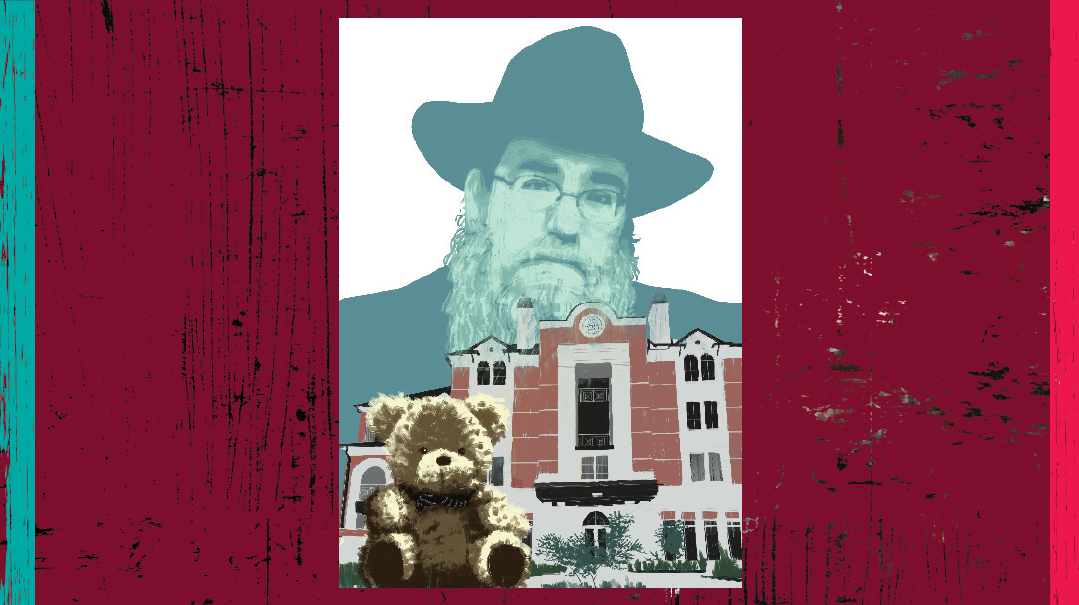
Rabbi Lazer Lazaroff, founder and director of Aishel House in Houston, Texas
You might say reaching out to other Jews is my family’s business. I come from a line of Chabad shluchim, and our mission has always been to serve other Jews with ahavas Yisrael.
My father was the very first Chabad shaliach in Houston. I’m the oldest in my family — I was five years old when we made the long drive in 1972 from Oak Park, Michigan, to Houston. In those days there was no frum community in Houston to speak of. In school, I was one of the only boys with a yarmulke.
From the age of five, my parents sent me to summer camp in New York where my uncle was the director, so that I could be nurtured by a more Yiddishe environment. At age 11, I was sent to Brooklyn to live with my grandparents to go to yeshivah. By then, my parents had started the Torah Day School, which continues to provide a Torah education to this day. (There were seven kids in the first class, and five of them were my brothers and sisters.)
After I married my wife, Rochel, a Montreal native, I learned for a year in kollel in Crown Heights, and then we moved to Houston and taught in the day school for a year. After that, we decided to start outreach at Rice University and move near Houston’s Medical Center, which today is the largest medical center in the world. We weren’t sure how we were going to provide support to people with medical issues — we were there alone, a young couple in our twenties. How would we know how to comfort families in crisis?
Then we experienced our own life-altering medical crisis. We’d moved into an apartment above a small shul in 1992, a couple of blocks from the hospital. Just a few weeks later, on a Friday night, my wife went into labor with our second child. The labor seemed to stop around 2 a.m., and they wanted to send us home. I asked for the stairs instead of the elevator, and when the charge nurse realized we’d be walking home alone so late, because of Shabbos, she found us a room to sleep in.
That was a lifesaving offer, since my wife woke up the next morning in a state of emergency. Ten minutes later they whisked her into surgery, and our little baby girl was born. But a few hours later, they still weren’t bringing the baby to my wife. Finally, they broke the news: “Your baby is blind, and has other serious health issues.” The news was devastating. My wife was just out of surgery, and we were all alone there with this terrifying new situation. As soon as Shabbos was over we called our parents, and my in-laws got on a plane the following day.
We spent the next year in and out of the hospital with the baby; she had respiratory issues and gastrointestinal issues, and had to be given a G-tube. One night, when she was 11 months old, I was on my way out to a shiur, and it was as if I had a premonition. I gave the baby a kiss, and when my wife looked at me quizzically, I said, “Just in case I don’t see her again.” In the middle of the shiur, my wife called: The baby’s heart had stopped. The next day we were on a plane to New York to bury her in Old Montefiore cemetery, where many of my family members were buried.
Later, I told my wife, “Now Hashem is teaching us how to provide support to other people.” We realized that although we’d always been taught that everything Hashem does is for the good — be it in a revealed or concealed manner — we were now being put to the test. We’d talked the talk, and now the challenge was to walk the walk.
Years ago, doctors knew much less about genetic conditions. If a baby was born with a problem, doctors assumed the couple would henceforth have a one in four chance of having another sick baby. I still have the letter from the doctors at the Baylor Department of Genetics advising us to stop having children. (You see we didn’t listen. We put our faith in the Rofei Kol Basar, and proceeded to have ten more healthy children.)
Still, our year with a sick baby was truly rough, and it sensitized us to the plight of families in the throes of a medical crisis. My wife began baking challahs on Friday for me to distribute to patients in the hospital. As we visited people, we realized that the biggest hardship for sick patients and their families, especially the frum ones, was where to stay while the patient was in treatment. The Medical Center is at least 20 minutes from where most frum people live, and there are many people who come here from out of state, even out of the country. We found a rental apartment right next to us, but soon saw that it wasn’t sufficient. We’d agree to let one person stay, and then get a call from someone else who needed to come with his entire family for two months.
We then bought a house behind our original building. It was in poor condition, but we made it livable, and as tenants in the area moved out, we’d take over more apartments. Eventually we acquired five lots.
In the meantime, I decided to train as a chaplain, to better serve the people coming through our Bikur Cholim apartments. I earned a CPE (Critical Pastoral Education) certification, which required 400 classroom hours over four years. I found it very helpful, although it was sometimes tricky maneuvering within such a mixed religious environment (for example, they held our induction ceremony in a church). Fortunately, my fellow students were well-meaning people of faith, and with diplomacy I was able to work things out. Some of the non-Jews had never encountered a real live, authentic Jew before, one who even knew Hebrew, and they’d barrage me with questions.
When we were sent out to practice our skills, we were assigned by hospital floors, not by religious affiliation. Hence sometimes a family would call for a chaplain, expecting a priest to give last rites, and would be shocked to find a chassidic man with a beard walking into the room. But you learn to speak a language of G-d that all people can relate to, and be present for them in their suffering.
The classes teach you a lot about yourself, about how to be compassionate. You learn what isn’t compassion: Compassion is not dispensing medical advice; compassion is not about asking yenta-type questions (“Which artery was it?” “Where did the tumor spread to?”). I learned how to reach out while respecting the other person’s space, and how to listen actively. I found myself capable of offering comfort to people, which really means climbing down into the pit with them, and being with them in the darkness.
It can be emotionally draining, constantly making yourself vulnerable to other people’s pain. Of course, we also experience rough patches — sometimes we’ll have a month of bad outcomes. During those times I’m constantly dealing with the chevra kaddisha, the protocol of taharos, and burial arrangements. There are nights Rochel and I cry ourselves to sleep with grief.
Sometimes people ask us how we do it. Rochel says it’s like being a soldier in a war. People glorify their valor, but if you were in their position, you’d fight exactly the same war. You have no choice but to enter the battle.
But we merit many happy outcomes as well. Just last week we were invited to a seudas hodaah of a young woman from Flatbush who spent months here with her baby. Her family invited 500 people to the seudah! People like that become our extended family.
When families are in a medical crisis, they need tremendous emotional support. But they need material support as well. In an ICU, when life hangs by a thread, there’s no time to think about food, lodging, or work.
We started looking for an architect to construct a Bikur Cholim house that would be welcoming and attractive, without being commercial looking. We found a Jewish guy who’d been designing this sort of thing for 15 years, and he understood how we operated. We needed not just rooms, but a shul, commercial kitchens, and large dining rooms. We even included a mikveh on the premises. When I saw the new design, I was so happy I kissed the architect.
In the New York area, a lot of the bikur cholim facilities are more like dorm rooms, provided for local people who just need a place to stay over Shabbos. It’s different here. The Houston Jewish community is small, but the Houston Medical Center is the largest medical center in the world, and gets patients from all over. People are often here for extended stays. We therefore designed our rooms not as sleep rooms, but as one and two-bedroom apartments, with washer-dryers and kitchens. Since we don’t know who will be using the kitchens, they’re designed with easily kasherable materials like granite countertops, self-cleaning ovens, electric coil stovetops, and stainless steel sinks. We provide linen service, washing guests’ towels and sheets once a week. We do ask patients’ families to contribute some money, although it’s only half of what it costs us to maintain their rooms. Air-conditioning alone — which is definitely not a luxury in Houston in the summer, especially if a resident is sick — is a huge expense. Jewish patients find us through the hospital social workers, and occasionally we take in non-Jewish guests. We provide Shabbos meals for people who need them, and the shul on premises doubles as a beis medrash with full sets of seforim.
Since we’re also Chabad shluchim, people are often curious as to whether kiruv happens as a result of our efforts. The answer is yes, sometimes, but the reason it happens is because we specifically don’t have an agenda beyond plain, simple ahavas Yisrael. We have no ulterior motives. Once an Israeli family came to us, referred by a nurse; they were looking for a Hebrew-speaking babysitter. The father marched in with a combative attitude, announcing immediately, “Rabbi, we don’t keep Shabbos.” I said, “And?”
“And we don’t eat kosher!” he said. Again I answered, “And?”
“So there are no conditions to us coming here?” he said, confused. “So… so why do you do this?”
I told him, “Because you’re my brother.”
Wouldn’t you know, he came to shul that Friday night, and continued coming every week. He later told me he’d been turned off to religion in Israel, because there were terrible politics in his shul. But here he reconnected, and so did his family. His daughter nagged his wife to buy her a long skirt that she could wear to light candles with my wife on Friday nights.
If we succeed in influencing other people at Aishel House, it’s precisely because our love is unconditional, no strings attached. Every Jew is our brother or sister. Our job is to be there for them in their hour of need.
(Originally featured in Mishpacha, Issue 806)
Oops! We could not locate your form.






